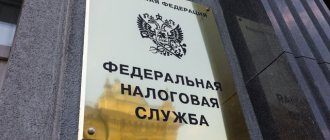I would like to share my experience of applying in practice the legislative norms approved for gardening partnerships. Recently, there have been so many changes in laws, and it is difficult for a person not well-versed in jurisprudence to master and understand the terminology and evaluate the actions of superiors. I didn’t know what membership fees to SNT were used for, how they differed from targeted payments, I silently paid for everything that the chairman demanded.
It is rightly said that ignorance of the laws does not exempt you from responsibility, nor from unnecessary expenses. Only the study of Federal Law No. 217, amended on November 9, 2021, helped me understand the established provisions and understand the fairness of many of the decisions of our chairman of the board. Therefore, it became necessary to tell gardeners and gardeners from partnerships about my analytical research. Perhaps from my story the essence of contributions to SNT will become clear.
Source yandex.net
What are membership fees paid for according to the law?
Art. 14 of Law 217-FZ of July 29, 2017 N 217-FZ “On gardening and horticulture by citizens for their own needs” divides gardeners’ contributions into:
- Target
- Membership
The main difference between membership fees and target fees is the purpose of payment.
What is included in targeted contributions to SNT
Targeted contributions in a gardening partnership are collected to cover one-time and irregular expenses. For example, if in SNT you need to install a common fence, build a road, install gas, repair a well, or prepare a survey of public lands.
Why do we pay membership fees to SNT?
Membership fees are exclusively paid for:
- maintenance of common property (including improvement of common lands)
- supplying SNT with electricity, gas, water
- payment for security and fire safety services
- removal of MSW (municipal solid waste)
- conducting audits
- salary payments under employment contracts to employees
- taxes and fees SNT
- implementation of decisions of general meetings.
No other needs other than those listed above can be covered by membership fees.
About conducting gardening and vegetable gardening on an individual basis (individual gardeners)
As before, individual gardeners, that is, citizens who are not members of the partnership, are granted the right to conduct gardening or vegetable gardening on garden plots of land or garden plots located within the boundaries of the gardening or vegetable gardening territory, without participating in the partnership.
Such citizens have the right to use common property on equal terms and to the extent established for members of the partnership. This right is provided for a fee. Thus, individual gardeners are required to pay a fee for the acquisition, creation, maintenance of public property, current and major repairs of capital construction projects related to public property and located within the boundaries of the gardening or truck farming territory, for the services and work of the partnership for managing such property.
Moreover, the total annual fee is set in an amount equal to the total annual amount of target and membership fees of a member of the partnership.
In case of failure to pay such a fee, it is collected in court.
Thus, the costs will be the same for members of the partnership (target and membership fees) and for individual gardeners (payment for the use of the common property of the partnership). In addition to the obligation to pay a fee, Law N217-FZ gives individual gardeners the right to participate in the general meeting of members of the partnership and vote when making decisions, in particular on issues of creation (construction, reconstruction) or acquisition of public property, including land plots general purpose, and how to use it.
How to pay membership fees to SNT in 2021
Each gardening organization independently determines how to pay membership fees. According to the law, the payment procedure must be regulated and prescribed in the SNT charter, and all SNT calculations as a legal entity. persons must go through cashless payments. At the same time, the law states that membership fees cannot be collected more than once a month.
In fact, gardening usually has its own regulations. Membership fees in the form of utility bills, which are paid according to tariffs (garbage removal, electricity, sewerage, etc.) are collected monthly. The remaining amount (for example, for unforeseen repairs of common property, taxes, mowing grass in a common area, wages for watchmen) is collected in one payment - once a year.
With targeted contributions it’s simple - they raised the issue at a meeting, voted and made a decision on the procedure and timing of payment. Payment of contributions according to the new rules only through the bank. Read about the features of such payment in 2021 here.
From which moment
SNT requires membership fees only from persons who have duly become members of the gardening community. To join, you must submit an application.
An application for admission to membership in the partnership is considered by the general meeting of the SNT. If the decision is positive, the owner of the garden plot receives the status of a member of the SNT and, at the same time, the obligation to pay contributions.
Does the chairman pay?
The chairman is a member of the SNT. Therefore, he is obliged to pay membership fees on the same basis as other gardeners who have joined SNT.
The legislation does not provide any benefits for the chairman or members of the board for paying membership fees. The establishment of such benefits in the SNT charter will contradict the rule of paragraph 2 of Art. 14 of Federal Law No. 217-FZ, according to which contributions are paid by all members of SNT. Occupying a position in SNT is not indicated as a basis for establishing a special amount of contributions.
Do those who leave SNT pay?
Membership fees are calculated only for SNT members. At the same time, leaving the partnership will not relieve the former gardener from having to pay.
Non-members of SNT, instead of contributions, pay payments equivalent in amount to them under an agreement with the partnership.
Membership fees
Every year the board increases membership fees, and many people ask, on what basis?
Membership fees are paid according to the tariff schedule established locally. This applies to utility bills. Otherwise, the amount of contributions depends on the additional costs of maintaining the common property.
The basis for membership fees is the income and expense estimate of SNT, which any member of the partnership has the right to familiarize themselves with. In addition, payments must have an economic justification (concluded contracts with hired employees, confirmation of payment for activities related to the maintenance of the PDO.)
Thus, each member of the partnership has the right to participate in the discussion and proposal to reduce membership fees by reducing unreasonable expenses.
The annual increase in membership fees directly depends on the increase in utility tariffs, the increase in wages for mercenaries and on the annual increase in prices.
Tax systems and accounting
There is no choice as such. In fact, you will have to decide between OSNO and simplified tax system. For convenience, given that not every partnership can afford an accountant, in most cases they use a simplified system. Here is a “profitable” or “expendable” option - they decide based on the ability to confirm all expenses.
By the way! Because SNT exists due to targeted revenues; confirmation of costs is a prerequisite. You will have to report not only to the state, but also to inspectors, auditors and, of course, members of the partnership.
Accounting from SNO does not change and is based on the principles of accounting for non-profit organizations. Most transactions are simple and are formed with the participation of account 86 “Targeted financing”.
Let's look at a few typical transactions:
- Target contributions D 76 K 86.3 have been accrued (the subaccount may be different, this is just a generally accepted numbering).
- Membership fees charged D 76 K 86.2.
- Receipt of membership or target contributions to account D 51 K 76.
- Payroll management (chairman, board members, chief accountant, etc.) – D 26 K 70.
- Salary of service personnel (janitors, watchmen, etc.) – D 20 K 70.
- Contributions for pension, medical and social insurance D 20, 26 K 69 have been accrued.
- Withheld from the income of employees personal income tax D 70 K 68.
- Wages paid D 70 K 51, 50.
Note! It is necessary to accept contributions to a current account, but it is not prohibited to withdraw funds received from the account to pay salaries or for other expenses.
- Funds were issued to accountable persons for the purchase of materials, payment for work or services D 71 K 51, 50.
- Materials, tools (low value), etc. were purchased. for SNT D 10 K 51, 50, 71.
- Paid for services or work D 20, 26 K 51, 50, 71.
- Accrued expenses for electricity, water supply and other similar expenses (including garbage removal) D 20 K 60.
- The above resources and services were paid to suppliers 60 K 51, 50, 71.
- Costs are reflected due to targeted financing D 86.2 (or 86.3 depending on the type of funds used) K 20, 26, 69, 10...
- If VAT is accounted for, then entries D 19 K 60 are added - tax accrual and D 68 K 19 - accepted for deduction.
If SNT conducts commercial activities (the proceeds from it should go to the main goals of the partnership), then the following transactions are present in the accounting:
- Proceeds from sales (provision of services, performance of work) D 62 K 90.1.
- VAT charged D 90.3 K 68.
- Payment received from buyer (customer) D 51, 50 K 62.
- Reflected expenses for commercial activities (cost price) D 90.2 K 20, 26, 69...
- The result D 90.9 K 99 when making a profit and D 99 K 90.9 when making a loss was generated and reflected on the appropriate accounts. The profit received is closed at the end of the year on account 84 (D 99 K 84), but since SNT's main activity is non-commercial, then retained profits are transferred to the target financing account by posting D 86 K 84, these amounts go to the goals of the partnership.
Accounting for fixed assets is carried out in the same way as for commercial organizations, using accounts 07, 08, 01 and 02. The acquisition of fixed assets through targeted contributions must also show an increase in the additional capital of the partnership, for which account 83 is used: D 86.3 K 83 - the increase is reflected DC at the expense of targeted funds spent on capital investments. When disposing of the corresponding fixed asset, posting is required - D 83 K 01.
Deadlines for payment of membership fees
Each SNT establishes not only payment rules, but also optimal deadlines. Thus, general meetings, as a rule, are scheduled for the May weekend, which coincides with the opening of the summer season. At the meeting, a decision is made on the amount of membership fees. The board reports for those payments that were spent last year (including those collected for unforeseen expenses) and establishes a new payment. Payment deadlines are specified in the Charter. If utility bills are usually collected once a month or once a quarter, then payments for “additional payments” for other needs are often set for one-time payment, for September-October, at the close of the summer season.
SNT income
In a partnership, income can be not only in the form of contributions. For example, at a meeting a decision may be made to sell property owned by the partnership - land, buildings, equipment. Unlike contributions, which are generally not subject to taxation and inclusion in SNT income, other receipts and income from commercial activities, on the contrary, are subject to taxes.
Let's divide our revenues into two groups: those that relate to non-taxable objects, and the rest, included in the base for income tax or the unified tax on the simplified tax system:
Group 1. Tax-exempt receipts. Everything is simple here - these are only contributions from SNT members, period.
Group 2. Taxable income:
- Contributions and fees received from other owners or copyright holders who are not members of the partnership. Despite the targeted nature of such funds, they are not classified as amounts exempt from taxation (all “preferential” revenues are listed in Article 251 of the Tax Code of the Russian Federation).
- Income from paid services, work, sale of goods or property.
When receiving funds from group 1, you do not need to use an online cash register, but for payments received from other citizens from group No. 2, the use of a cash register is required. You can send a check electronically by email or phone. Surely the chairman and chief accountant will have such information.
If SNT receives payment to an account from legal entities (for example, for sold equipment or land), then this is a regular non-cash payment and does not require the use of a cash register. Now, if the buyer’s representative decides to pay with a card through the SNT terminal, then this is already a payment using an electronic means of payment and the partnership is obliged to punch the check.
Distribution of membership fees to owners according to the law according to the area of the plot or house
There are many disagreements in SNT regarding the distribution of membership fees. The law in this regard specifies that contributions are paid in proportion to the number of acres, the square footage of the property or the size of the share in the common shared property.
Most often, SNT members pay contributions in proportion to the size of the land plot, and real estate is not taken into account. The larger the plot, the higher the payment and it doesn’t matter how many people use the dacha, how often they come and how much garbage they throw out. The rules for the distribution of membership fees are prescribed in the Charter of the partnership.
Obtaining a court order
What appears to be a very simple procedure actually turns into many small, important steps. The following documents and actions are required, which we can undertake:
- Documents grounds for collection - what is there (Charter, minutes of general meetings, correctly approved provisions for collection, other documents proving the correctness and fairness of the requirements);
- Correct calculation of outstanding principal contributions and penalties;
- Justification of periods for collecting target contributions and deadlines for work performed;
- Evidence that the debtor belongs to your SNT;
- Data on the debtor in accordance with the requirements of changes in the Code of Civil Procedure of the Russian Federation;
- Documents – evidence for individual users;
- Proper notice to the defendant;
- State duty receipt with correct calculation, etc.
If the defendant's address is unknown
The judge will not consider a case sent to the court at the location of the land plot, because debt collection is not a dispute over land. By requiring proper payment, obligations are imposed on the SNT member or individual user as a citizen. Such a citizen must know (as the Code of Civil Procedure says) his personal data. In most cases, such information may not be available in the SNT registry and according to individual entrepreneur data, or it may be outdated. Here you will have to take a different path, using “legal technologies”, which we will help you do when going to court.
If you don’t know from whom to collect the debt
When inheriting, buying and selling, donating or otherwise alienating land plots and/or houses in garden partnerships, SNT may not know the new copyright holders at all. The data received from the Unified State Register of Rights when ordering an extract from the state register of rights contains only the full name of the new copyright holder, if there is registration. And if the previously arisen right is not registered at all in Rosreestr (transactions before 1997, unregistered inheritance, court decision, etc.), then it seems difficult for the chairman to obtain information about the debtor.
An option to “obtain” information is to order information from the BTI, which used to be the registration authority (before the birth of the state bureau of registration of real estate rights). Or contact a notary, but again, which one? It is difficult for not only the chairman to work on this issue, but also for a lawyer with experience. We ourselves make many requests and petitions to find out information about the defendant. This is pre-trial work that requires time and effort. But in the end, the defendant will be known.
Court order received
When the procedure for obtaining a court order has passed, the defendant has time to file an application with the court to challenge it. When a court order is cancelled, a new stage of legal proceedings begins - a claim procedure for debt collection.
Statement of claim to the court for debt collection for membership and target fees, for electricity
Taking into account all the previous data, we draw up a statement of claim to the court, calculate the state duty, with the help of an SNT official, prepare a package of documents and submit it to the court. To get to know our lawyers, we are waiting for you to meet (free initial appointment). Pre-registration is required by calling the legal center (listed in the header of the site) or by phone. (812) 535-81-62.










